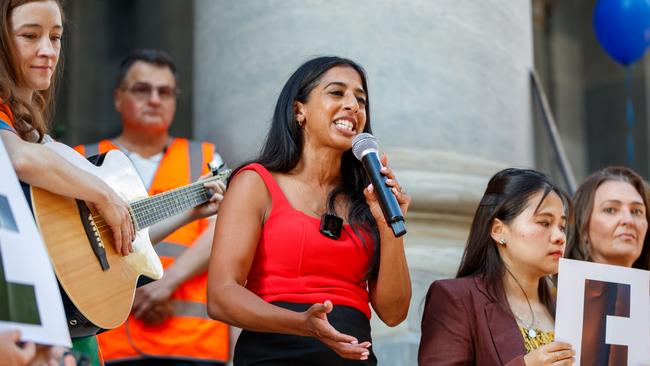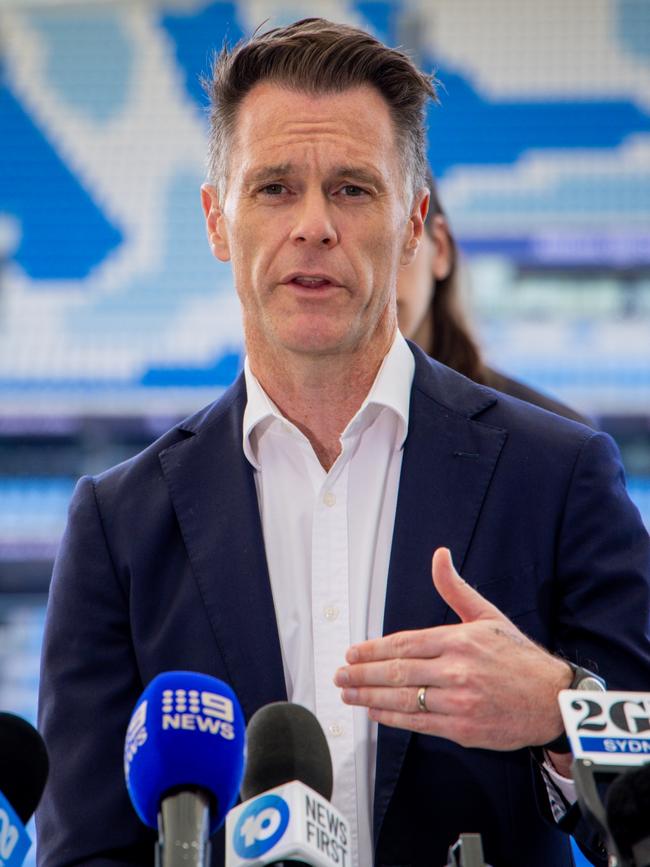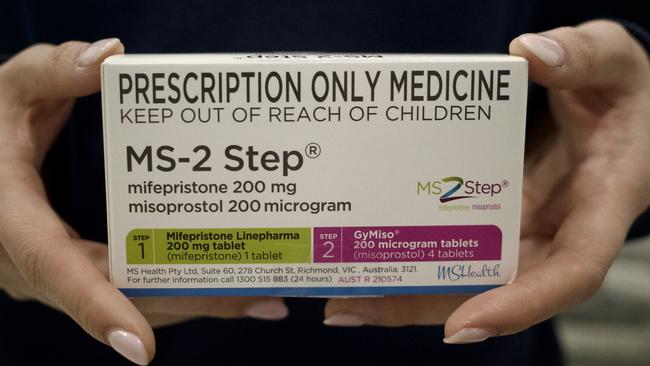NSW to expand access to abortion amid ‘brazen bullying’ campaign
A contentious but watered-down bill to expand access to medical abortions in NSW passed the lower house amid what was called a ‘brazen bullying’ campaign.

A contentious but watered-down bill to expand access to medical abortions in NSW passed the parliament’s lower house amid what was called a “brazen bullying” campaign, as advocates backed the move but criticised prohibitive reproductive health costs.
Marred by anti-abortion rallies outside parliament, a Greens-propelled bill that would allow nurse practitioners and endorsed midwives to provide drugs to terminate early stage pregnancies passed a conscience vote in NSW’s Legislative Assembly on Wednesday.
On its third reading, 65 voted in favour of the bill with 20 against.
First introduced by Greens MLC Amanda Cohn, the original bill included “radical” provisions that would have strengthened laws requiring conscientious objectors to refer patients to abortion providers and legislated a responsibility for the health minister to ensure abortion services were provided within a “reasonable distance” from people’s homes.
The upper house significantly watered down its contents last week but it is only the second Greens bill to pass both houses and would bring state law in line with Therapeutic Goods Administration guidelines.
Its passing comes amid rallies outside state parliament, and accusations of “brazen bullying” and “misinformation” campaigns.
Premier Chris Minns, who backed the amended bill, accused anti-abortion campaigner Joanna Howe, a law professor from South Australia, of spreading “deliberate misinformation and lies” to drum up opposition to the bill.
“It (Dr Howe’s alleged campaign) whipped up a lot of good people in the community, believing that the legislative changes are far more extensive than they are,” he said, adding an “enormous amount of misinformation” exacerbated a “sensitive” matter.


“As for threatening politicians … generally, Australian politicians, regardless of background or ideology, react incredibly poorly to that kind of threat.”
It comes after Opposition Leader Mark Speakman on Tuesday night revealed he would back the amended bill – saying he would not have supported the original “radical Greens bill” – but slammed Dr Howe, who allegedly “threatened” him and other MPs with a co-ordinated smear campaign unless they voted against the bill.
She allegedly sent an email to the NSW Liberal Leader detailing how she planned to launch a public campaign aimed at toppling him if he supported the bill alongside a “20-month campaign across five marginal (Labor-held) seats”.
However, Mr Speakman said he would support the bill and would “not cave to brazen bullying”, adding that he would not allow the “Americanisation” of state politics.
On Wednesday, Dr Howe – who was banned from the SA upper house last October for allegedly insulting, intimidating and threatening MPs on the night of a vote about late-term abortion law – called Mr Speakman a “snowflake” and told him to “grow a set”.
The reform comes as the significant costs and limited access to abortion services forced women to choose between financial stability and reproductive autonomy.
Although expanded access to abortion medicine could reach more than one million women in rural and regional NSW, the cost of a surgical abortion ranges from $500 to $8000 when taking into account medication, ultrasound scans, GP consultations and recovery expenses.
A medical abortion is usually far cheaper, but hidden costs and recovery time can still cause expenses to balloon.
Sydney resident Katherine, who was 24 years old and unemployed when she found out she was pregnant, said an independent provider advertised her medical abortion “would cost $400” but the eventual cost came “to about $900”.

“(The pregnancy test) was positive, and I was sitting on the toilet, my genuine first thought was ‘OK, how much is this going to cost me’,” she said.
“There were these underlying costs that weren’t initially there … I was scraping pennies out of my bank account … (thinking) ‘I literally have five dollars left to my name after I’ve paid for this’.”
Katherine put the cost of her pain relief medication on a “buy now, pay later” service, and started a new job while still bleeding heavily.
Advocates want more done to improve affordable access, given reproductive health in NSW is uniquely available primarily through private providers and payment must be made upfront.
Public hospital abortion services are primarily for complicated cases and later-term pregnancy gestations.
Alison Fonseca, a manager for reproductive health non-profit MSI Australia, said “while abortion care has been decriminalised, it is not properly funded by governments”.
Through its philanthropic Choice Fund, the registered charity finances abortions and contraception for women facing barriers to access, but receives no public money in NSW, unlike in other states.
“We have provided care for people in very difficult situations – women escaping family violence, women who are homeless, women on student visas and temporary visas,” Ms Fonseca said.
Family Planning Australia chief executive Sue Shilbury said the legislation was “a really good step forward in terms of access and affordability” but added NSW was still “lagging” other states.



To join the conversation, please log in. Don't have an account? Register
Join the conversation, you are commenting as Logout